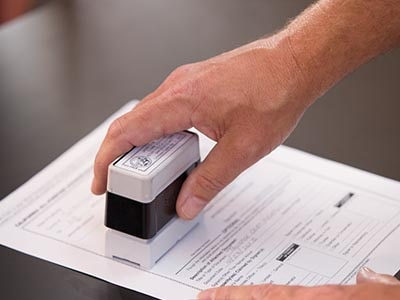Apostille Process Explained: Streamlining International Paper Verification
Apostille Process Explained: Streamlining International Paper Verification
Blog Article
The Power of Notaries: Exactly How Notarial Work Can Secure Your Legal Papers

Significance of Notarial Certification
Notarial accreditation plays an essential function in guaranteeing the credibility and legality of vital records. When a record is notarized, a notary public confirms the identification of the signatories, validates their willingness to authorize the file, and ensures they know the components of the record (Notary). By attaching their main seal and trademark, the notary certifies that the individuals appearing prior to them are who they assert to be, and the paper has actually been authorized willingly and without discomfort
This procedure adds a layer of safety and credibility to the paper, making it much more dependable and credible in the eyes of the regulation. Notarial accreditation additionally helps stop fraud and forgery by supplying a clear path of responsibility. In lawful matters, such as property deals, wills, powers of lawyer, and company arrangements, notarial qualification is commonly a requirement to verify the files and provide them lawful result.
Kinds of Legal Documents Sworn

The application of notarial qualification prolongs to a diverse array of lawful files that require confirmation and recognition. One usual kind of legal record that typically requires notarization is genuine estate transactions.
Furthermore, powers of lawyer, which grant someone the lawful authority to act on behalf of another person, are frequently notarized to guarantee their legality and enforceability. Sworn statements, vowed statements made under vow, also frequently call for registration to include credibility and validity to the statements being made. Numerous organization files such as agreements, agreements, and company filings are regularly notarized to guarantee their legitimacy and authenticity in the eyes of the regulation.
Benefits of Notarization
Guaranteeing the authenticity of lawful documents with registration offers a vital layer of security and trustworthiness in numerous essential deals. Registration provides a number of benefits that can dramatically influence the credibility and dependability of lawful records. Registration acts as a deterrent to fraud and imitation, as the existence of a notary public confirms the identifications of the signatories and guarantees they are authorizing the paper willingly and with full understanding of its contents.
Avoiding Paper Tampering
By carrying out stringent protection measures, document meddling can be properly protected against. Among the most typical techniques to avoid file tampering is with using tamper-evident technology. This technology Apostille includes functions such as special paper, watermarks, holograms, and protection seals that make any type of unauthorized alterations right away visible. In addition, making use of safe and secure electronic signatures and digital certificates can give an additional layer of protection versus meddling.
One more reliable means to avoid document tampering is by keeping physical files in protected locations and limiting accessibility to accredited employees only. Conveyancer. This can include keeping files in locked safes or closets and executing rigorous gain access to control procedures within the company

Notary Public Vs. Online Registration
Notary civil services give a standard approach of verifying the authenticity of lawful records, while online notarization offers a practical and efficient choice in the digital age (Conveyancer). Notary publics are state-appointed authorities who witness the signing of important documents, carry out oaths, and validate the identifications of the signatures. Their stamp and signature offer trustworthiness and authenticity to the documents they notarize, ensuring they stand up in court if tested
On the other hand, on the internet notarization leverages technology to simplify the registration process. With safe on-line systems, individuals can get in touch with a notary public via real-time video clip to confirm their identities and sign documents digitally. This method offers ease, especially for individuals that can not physically meet a notary public. Nonetheless, problems about security and fraud avoidance exist in the online notarization process, as ensuring the very same degree of verification and authentication as typical notarization approaches is essential. Eventually, the option between conventional notary civil services and on the internet registration relies on specific choices and the details demands of the legal paper available.
Conclusion
To conclude, notarial job plays an essential role in guarding lawful documents by offering a qualification of authenticity and avoiding meddling. Registration includes an added layer of protection and credibility to important records, ensuring their credibility in lawful issues. Whether with a typical Notary Public or online registration services, the power of notaries can not be underestimated in guaranteeing the integrity of legal records.
When a paper is notarized, a notary public verifies the identity of the signatures, validates their willingness to authorize the paper, and guarantees they are aware of the materials of the paper. In lawful matters, such as genuine estate deals, wills, powers of lawyer, and organization agreements, notarial qualification is typically a need to confirm the records and give them lawful impact.
Notary public services offer a standard method of validating the credibility of lawful documents, while on-line notarization uses a efficient and hassle-free option in the digital age. Eventually, the choice between typical notary public solutions and on the internet notarization depends on private preferences and the details demands of the legal record at hand.
Report this page